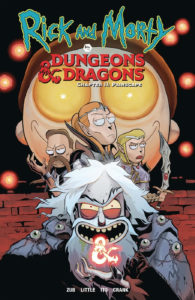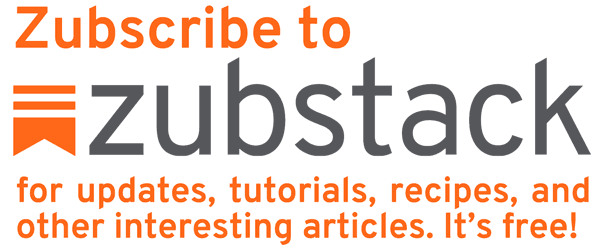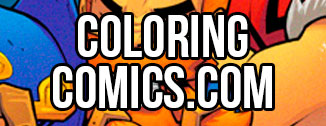Since posting up tutorials about writing, pitching and finding artists I’ve received quite a few messages asking for other information about the comic publishing/creator-owned business. I figured I’d answer a few here on my site so other people could benefit from the info.
Q) In your blog you mention a professional page rate – What is the average for a professional page rate? How much should I expect to pay on commission work to have a quality artist work on my comic?
The reason I didn’t list rates in my post is because there’s a massive possible range. Seriously, there are times when it feels like anything goes in this business. Whatever you and an artist can agree to is the rate that works for your project.
If you’re able to work with a talented art student/graduate they might do the work for cheap/free as an experience and for their portfolio, but it’s best not to plan on that.
If someone, especially an established professional artist, is making this their primary income then they’re going to expect some kind of semi-living wage. That’s going to vary wildly depending on where they live, how they live and what they expect. Everyone’s threshold is different.
Marvel/DC can pay double-triple what most independent publishers/individuals can afford, which is one of the many reasons why creators tend to drop everything else to work for them.
There’s a reason why Edwin and I have to take breaks between story arcs of Skullkickers. It’s not due to our production speed, it’s because I need to rebuild a buffer of money (from freelance work) in order to pay Edwin, Misty and Marshall for their hard work. I have never received a page rate for writing Skullkickers. It’s the most expensive “hobby” I’ve ever had. ;P
Q) When an artist works for a commission rate, does this replace their ownership rights for the comic, or is this in addition to what an artist would expect as compensation?
Illustrating a comic takes far longer than writing one does, so I personally think it’s reasonable for an artist to get some pay (though not necessarily a lot) and still expect a split on creator rights, but that’s just my opinion, not any kind of absolute rule.
If you’re paying a pro rate for the work then I think it’s reasonable (as long as everything’s stated up front) to set up a work-for-hire scenario and keep sole rights. Just make sure the communication and accounting is clear.
Q) In general how many issues do you have to sell for a comic to break even?
It varies wildly depending on your creative costs. It also depends on fluctuating costs like paper stock, which printer is being used, how many comics you’re printing (which change the price/unit cost), advertising costs and shipping/storage fees (which vary with the rising price of gas).
I wrote an entire blog post about the profitability of creator-owned comics you can check out right HERE.
Q) You wrote about how to find an artist, but what about a letterer and colorist? How do you find them?
There are quite a few letterers out there and most are willing to take on extra work because they’re rarely full-up. Check the credits of your favorite indy comics and look them up online. Don’t scrimp on lettering or think that it’s something you can just do yourself without practice/training. Lettering can make or break a comic.
Quality colorists are more numerous than pencilers, but you still have to hunt them down, in many of the same places I recommended you look out for line artists.
Q) Does a publisher require payment up front to publish a creator-owned comic? If that isn’t typical, can someone pay a publisher to publish their comic?
For reputable publishers, no. If they don’t think a project can make back a minimum amount then they’re not going to take the risk and publish that book.
There are some small publishers that will solicit and publish a comic for a fee but I think that kind of stuff is a scam. When a publisher is that small they’re not helping get the work out to a larger audience anyways. You’d be better off just posting the work online for free and save yourself the printing/distribution hassle.
Q) How does a comic get distributed to comic shops? How does it show up in the catalogue? Is this something the publisher does?
Publishers that have an agreement with Diamond (the only major comic distributor right now in the market) list books they want to solicit in the Previews catalogue. Diamond takes orders and, once the order period is finished, they send the publisher a PO (purchase order). Based on the number of sales, the publisher will set their print run, print the comics and then see that they’re shipped to the distribution warehouses. The publisher takes care of these steps.
Q) When you get invited to do signings or conventions, is that something you’re paid to do or have your expenses covered with?
I attended 15 conventions in 2012 and each one operated differently. There’s no absolute rule.
Some cover everything (but that’s quite rare this early in my career), some just my table/booth, others cover airfare OR hotel but not both, some cover nothing at all and my expenses are all out of pocket.
I have to budget carefully to make sure I’m not losing money by attending a convention. I can’t afford to spend money on promotion right now. If I lose money on a show I either have to figure out how to make it work better next time or not attend that convention again. A convention has to make some money to go into the “war chest” I’m building up to pay for other creator-owned projects I’m planning.
In short: buy creator-owned books at conventions. It means a lot to the creators exhibiting there.
Q) Is there any other good advice you can give for my pursuit of a comic career?
Way too much for me to impart and I’m still learning a lot. Some of it is stuff you have to go through personally in terms of the industry roller coaster and other stuff is common sense.
Here are a few quick tips:
– Don’t spend money you don’t have/can’t do without, even for your creative dreams.
– Don’t assume you are the exception to the rule.
– Be brutally honest with yourself about the quality of the work you’re producing and strive to improve each and every time you put your stuff out there.
If you found these answers helpful, feel free to let me know here (or on Twitter), share the posts with your friends and consider buying some of my comics to show your support.





 Zub on Amazon
Zub on Amazon Zub on Instagram
Zub on Instagram Zub on Twitter
Zub on Twitter
1 Comments.